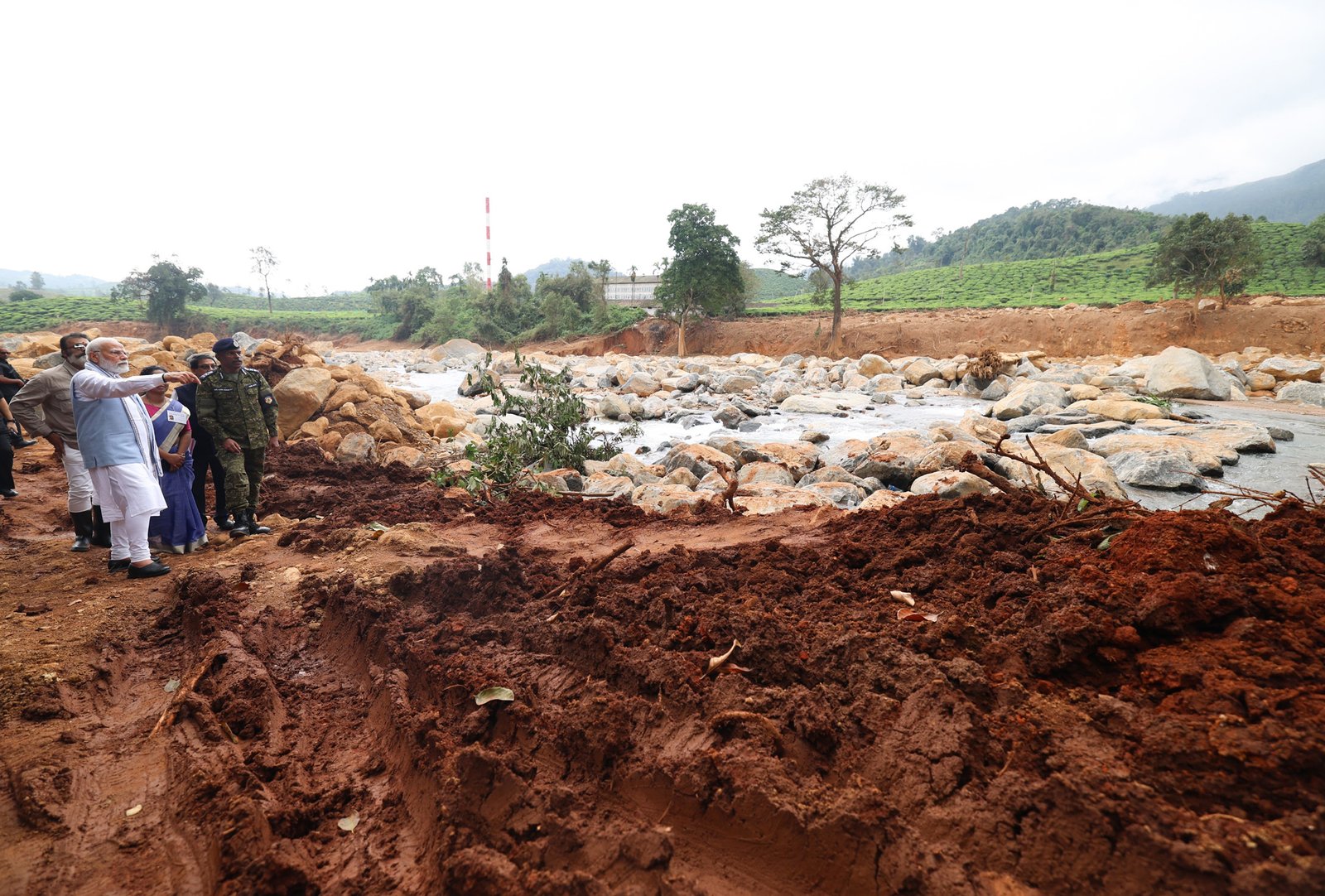Preventing landslides like Wayanad needs a comprehensive approach
- Rommel Rodrigues
- Aug 11, 2024

PM Narendra Modi walking along a completely flattened village in Wayanad
MUMBAI: The recent devastating landslides in Wayanad district of Kerala have once again highlighted the urgent need for proactive measures to prevent such tragedies in the future. It is crucial to address the underlying causes and implement a comprehensive approach that combines regulation, education, and scientific research. By doing so, we can mitigate the risks and protect vulnerable communities from the devastating impact of landslides.
Landslides are primarily caused by gravitational forces and environmental factors such as rainfall. Wayanad's unique geographical features, including its hilly terrain and heavy monsoon rains, make it particularly susceptible to landslides. Therefore, it is essential to understand these causes and develop strategies to minimize their impact.
One of the key steps in preventing landslides is implementing stringent regulations. The Western Ghats Ecology Expert Panel (WGEEP) has categorized all three taluks of Wayanad as Ecologically Sensitive Zone I, recommending strict regulations, including a ban on future construction and mining. These recommendations should be seriously considered and implemented to protect the fragile ecology of the region.
Unchecked development driven by tourism and quarrying has significantly disturbed Wayanad's fragile topology. It is crucial to adopt sustainable development practices that take into account the carrying capacity of the region. Construction of roads, resorts, and other infrastructure should be undertaken with scientific precision, considering the environmental impact. This will help minimize the disturbance to the natural landscape and reduce the risk of landslides.
Investing in early warning systems can play a crucial role in preventing loss of life and property. Adequate and strategically located rain gauges should be installed in landslide-prone areas to monitor rainfall patterns and provide timely alerts. This will enable authorities to evacuate vulnerable areas and take necessary precautions before a landslide occurs.
Raising public awareness about the risks of landslides and educating communities on preventive measures is essential. This can be achieved through community engagement programs, workshops, and educational campaigns. By empowering individuals with knowledge about the signs of impending landslides and the necessary precautions to take, we can enhance community resilience and reduce the impact of such disasters.
Collaboration between government agencies, scientific institutions, and local communities is crucial in addressing the challenges posed by landslides. Investing in research and technological advancements can help us better understand the dynamics of landslides and develop innovative solutions. This includes studying rainfall patterns, soil stability, and the impact of climate change on landslide occurrences.










Reporter
Rommel is our Editor. He has close to three decades of experience in leading publishing houses including, Fortune India, Observer of Business & Politics, The New Indian Express etc.
View Reporter News